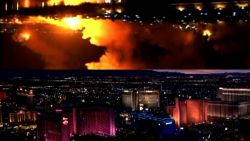Coop média de Montréal
Journalisme indépendant
Save the Future: End "Civilization"
End:Civ, by Franklin Lopez, is simultaneously complex and staggeringly simple: “civilization” is barrelling toward annihilation and the faster it happens, the better off the survivors will be.
To make sense of this, one must first understand the term “civilization” in the context of mass industrialization, oil-based economies, and ongoing colonization that infantilizes “traditional” approaches to life that understand humanity as only a part of nature, rather than viewing the earth as separate from humanity; a commodity to use/protect. It may sound strange to some, but there’s a simple logic to the film’s foreground.
Society is, as political sociologist Max Weber once put it, based on a “monopoly over the legitimate use of violence.” The powerful derive the most benefit from the exploitation of the Earth but enjoy additional power or even impunity because of their cooption of social movements and ability to dictate “legitimate” methods of protest. However, End:Civ reminds us that we are all implicated in the destruction of the natural world through deforestation, oil exploitation, destruction of living rivers and bodies of water.
Through choosing “civilization” as a unit of analysis rather than “the state” or “capitalism” as one might expect from a film with a radical tilt, Lopez’s use of “civilization” allows viewers to transcend the particularities of their own special interest, however significant and important it might be, to see the consequences of civilization as a whole on the Earth. End:Civ is, at its core, a call for wide-spread solidarity amongst activists (and all humans for that matter) to transcend their points of disunity and realize the urgency of bringing down civilization rather than any one part of it.
A key point, which could have been clearer in the film, is that the unifying factor between dominant “civilizations” has been a belief that humanity is separate from nature, and that nature is subordinated to serve human interest. It is no coincidence that the first large-scale man-made environmental devastation that we know about comes from ancient Mesopotamia with the clear-cutting of lush forests that turned modern-day Iraq into desert. It is from these same origins, in the ancient city of Ur, that the patriarch Abraham emerges. Codified in what is conventionally called the “Old Testament” is a God given right to have “dominion” over nature (Genesis, 1:26) and the story is shared by at least three major world religions: Judaism, Christianity, and Islam.
Deeply inspired by the work of Derek Jensen, Lopez’s film explains compellingly that the destruction of the planet is rooted in the philosophy of ownership or right to nature itself rather than the resulting constructions of capitalism or the state. This assumption that nature is ours to exploit underscores the way that most human civilization is practiced today; starting from understanding the prevalence of this assumption prevents the easy blaming of ecological decay on any one civilization, but blames civilization itself. What is different today from ancient times is the scale at which mass exploitation occurs. Technology, over the last few hundred years in particular, has concentrated masses of people in cities. This is well beyond the ability of the land to sustain, leading to over-burdening the countrysides and transporting food into urban centres. Economic globalization has only globalized these processes, creating “countrysides” out of whole territories, species, and humans. There is little reason to believe that humanity as a whole is better off in terms of happiness or quality of life as a result of it. In fact, anthropological research suggests the opposite.
Lopez exhibits sophisticated artistic talent most clearly near the middle of the film, where he vividly shows the relationship between consumer items and the sources and effects of these items on the rest of the world. The two screen-shots offered as examples in this article illustrate the technique, showing first an American skyline with an upside down shot of the bombing of Iraq in 2003, and second the source of blood diamonds in the war ravaged Great Lakes region of Africa. Other examples include showing people enjoying fried chicken or hamburgers in one side of the frame, with the brute reality of factory farmed cattle and poultry as its opposite. Lopez shows the consequences of humanity’s death-drive based on natural exploitation.
Regardless of your politics, End:Civ has important messages for people across the political spectrum(s). For pacifists, the message is a call to investigate the historical and empirical occurrences that underscore the “success” of pacifism. Violence and non-violence should not be seen as mutually exclusive and driving a wedge between “good” activists and “bad” activists serves the interests of the status quo.
For non-pacifists: there must be an emphasis on solidarity over unity. Political divisions amongst those people who have other beliefs in common help to reinforce the power of a system of belief based on greed and exploitation; instead, we should work toward a genuine community of activists who embody a diversity of tactics. North America in particular, Lopez argued on stage to a crowded Montreal audience, needs to foster a sense of community that can be likened more to the Zapatistas in southern Mexico. “Only a small number of Zapatistas conducted armed fighting,” Lopez said, “but they are supported by an entire community that acts in solidarity with them.”
For non-active people more generally, End:Civ is a call to look critically at your own life and ask, “what level of crisis would it take for me to become active? “ John Maynard Keynes famously wrote “in the long run, we’re all dead,” but Keynes was talking about individuals. End:Civ has a similar conclusion, but it is the majority of life on Earth that is threatened by humanity’s unwillingness to look critically at itself and take the ecological fight to the offensive rather than perpetually capitulating to the passive, co-opted middle ground that may postpone cutting down trees for a few days but remains ruefully unable to stop the long march of ecocide. Real victory in the Eco-Wars will come from the restoration of a genuine equilibrium in the natural world of which we are all a part. Such a balance, however, is systemically impossible without the end of “civilization” as we know it.
About the poster
The site for the Montreal local of The Media Co-op has been archived and will no longer be updated. Please visit the main Media Co-op website to learn more about the organization.





